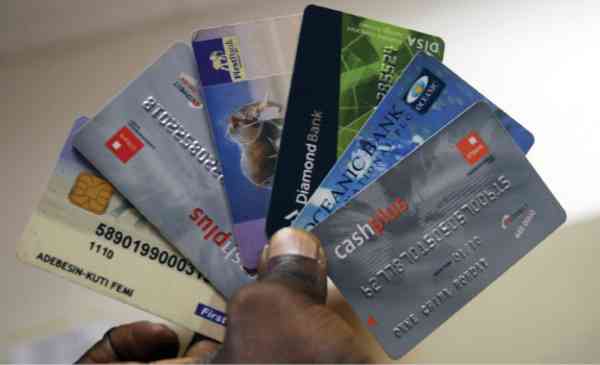To protect your card from external harm, there are few tips you must acknowledge and start getting familiar with.

The Cashless Policy, as we know it in Nigeria, was officially introduced and became fully operational in 2014 – with the aim to encourage electronic banking and to reduce physical cash in circulation – which would in turn decrease cases of cash-related crimes. One way of implementing this policy is through the use of ATM cards.
It is true that the advancement of technology has generally made our lives easier and more convenient. But, the adage “whatever has advantages, also has disadvantages” is not left out in the case of electronic banking. With the development of ATM machines and electronic cards for mobile banking, there are some risks and exposures associated therewith.
Some of these could devastatingly leave you broke in the blink of an eye; whereby, you find out the money you have worked so hard to accumulate has vanished with the stroke of some keys.
The Cashless Policy was met with e-banking fraud. There were reports of banks and individuals losing a lot of money to fraudsters, despite the regular checks put in place by financial bodies to curtail the loss of an individual’s hard-earned money.
The onus, therefore, falls on all responsible individuals to guard and protect their assets – Yes, your ATM card is an asset.
It is important to know how to handle your cards and make sure you’re not only using it correctly but smartly.
Automated Teller Machine (ATM) means a machine that dispenses cash and also performs specific banking services at the user’s convenience.
It is a dedicated payment system and the ATM card is issued by banks and other financial institutions for ease of financial transactions. It usually comes in the form of debit cards, which means you must have monetary assets with the said bank, to be able to use the card for transactions.
In order to handle your card wisely, you must be intentional about the money that comes into and goes out of your pocket. You cannot leave anything to chance. Have a plan for your money and stick to it.
To protect your card from external harm, there are few tips you must acknowledge and start getting familiar with.
- Protect your pin: You must not give out your Personal Identification Number. As the name connotes, it’s your very own personal form of identification, which grants you electronic access to your money. If for any reason your PIN gets exposed, you must immediately reset it. Furthermore, do not write it down on a piece of paper or if you must, do not leave it exposed or in your wallet
- Always report suspected cases of fraudulent activities: When you’re in the know about your finances, any discrepancy will immediately come to your notice. Some people do not recover from cases of fraud, because they didn’t discover it on time. Remember that the earlier you report a problem, the sooner it gets resolved. On this note, you must always be familiar with all bank transactions and statements. If you notice at any time that your card is missing – especially when you’ve been out with it, and you suspect it’s been stolen, report it immediately and block that card.
- Be cautious of the ATMs you use: Always use one that is associated with banks. Avoid any machine that may be situated in suspicious locations. In as much as it grants ease as a means of solving our problems, compulsive use of your ATM card should be avoided. Even with the extra charges attached to card transactions these days, you really would be doing yourself a favor by being careful of where you insert your card in your bid to avoid bank ATM charges.
- Do not be careless with your phone: Try as much as possible to avoid being careless with your phone or any other device that may contain your bank information. Always create security profiles for your gadgets. It doesn’t take much for someone to access your details and wipe your bank account clean. Make sure that your phone is protected by a password or pin and whenever possible, delete traces of money transactions from your gallery or messages, after you must have successfully backed them up of course. Just remember that your card information could be contained on your phone and leaves you to exposure if mishandled, so handle with care.
- Do not use public wireless connections for financial transactions: In fact, you should always be wary of all public wireless access. It is a fast and unsecured way for a third party to gain access to your private information. You could as well leave that information on a billboard for the whole world to access. Be sure to use password-protected wireless connections, it makes it more difficult for hackers to access your details.
Bottomline
Try to change your pin every few months. Keep it simple and short, only using codes you can remember.
Conclusively, while it is very convenient to use debit cards or ATM cards for financial transactions, you wouldn’t find it funny to learn that someone has emptied your account on the spot. Hence, it is important that you take precautionary measures to always keep your card safe.

No comments:
Post a Comment